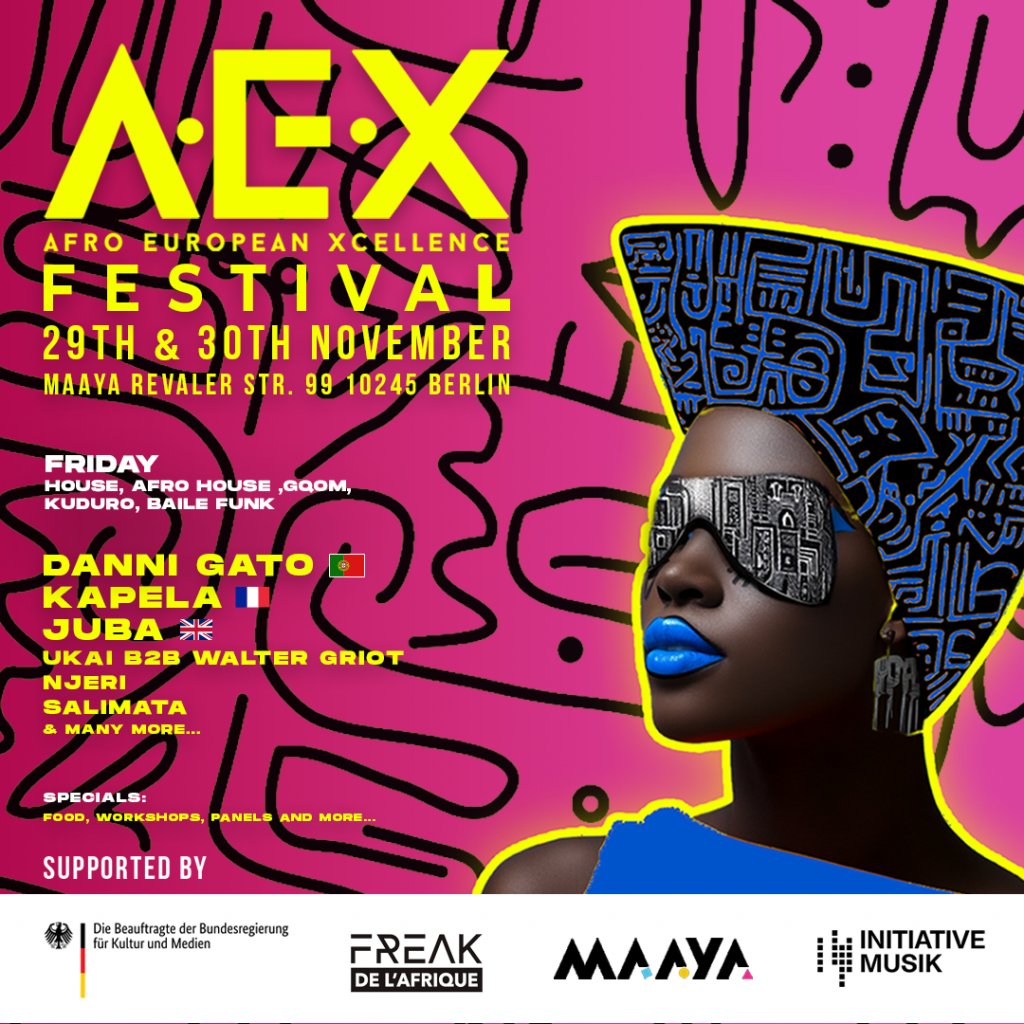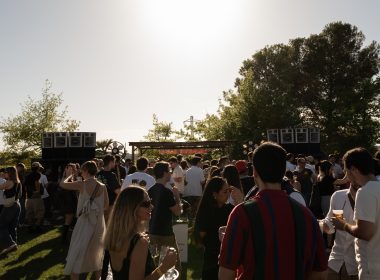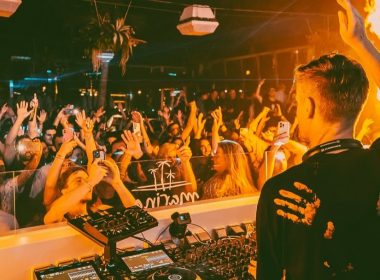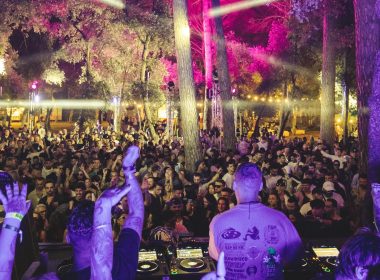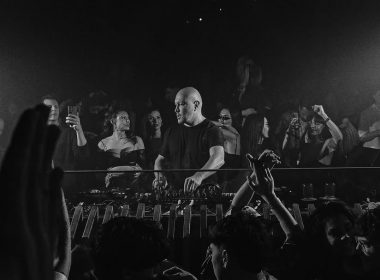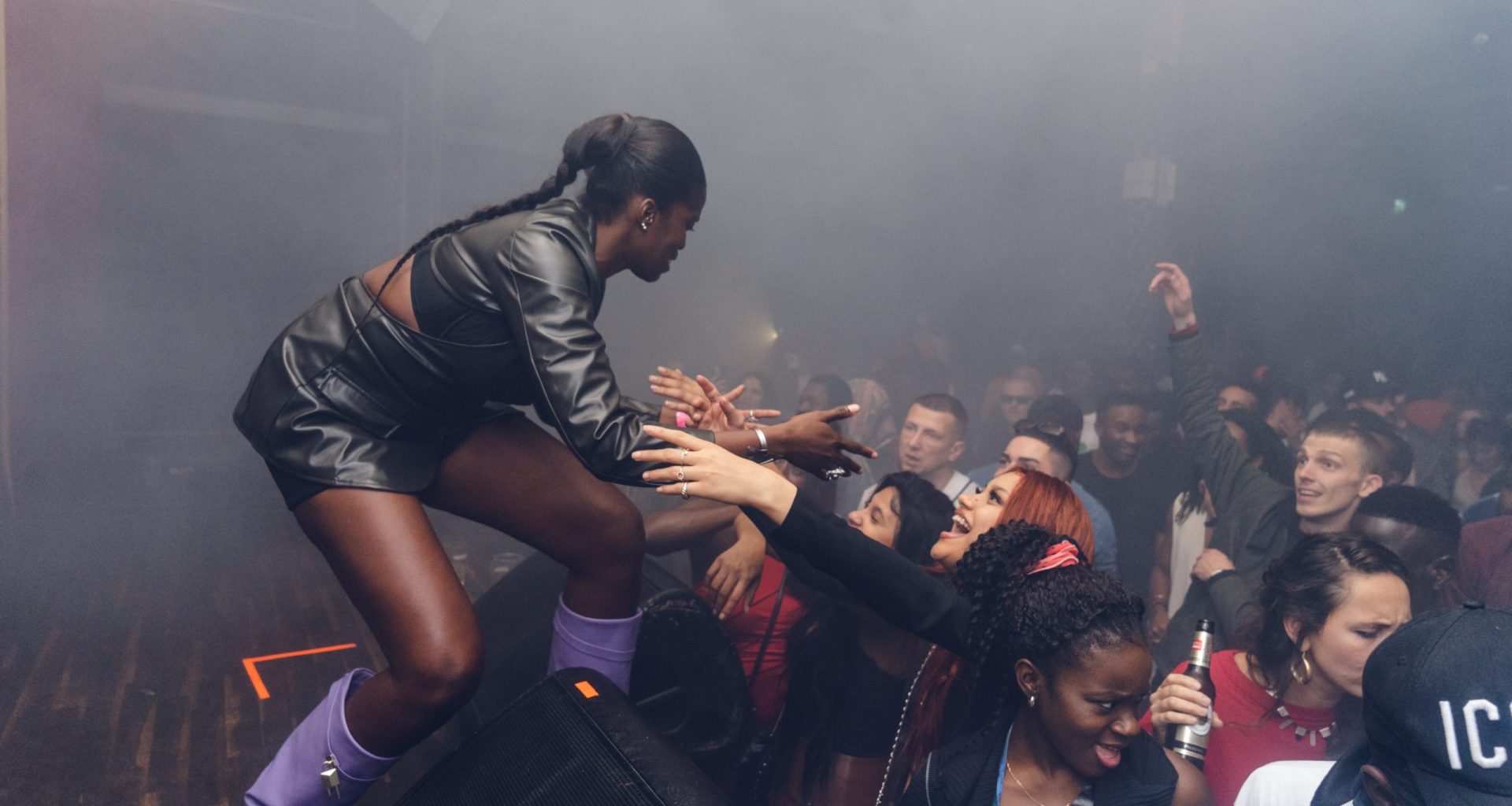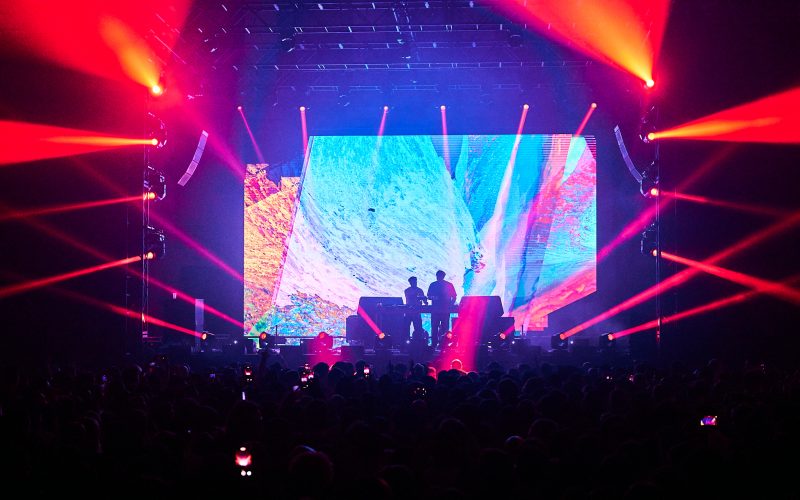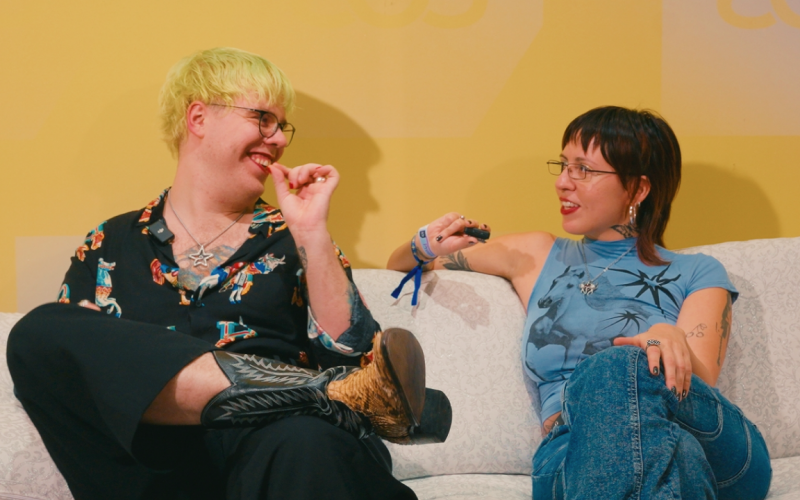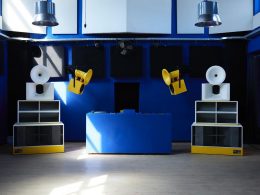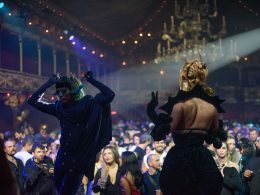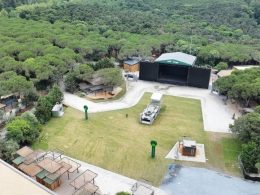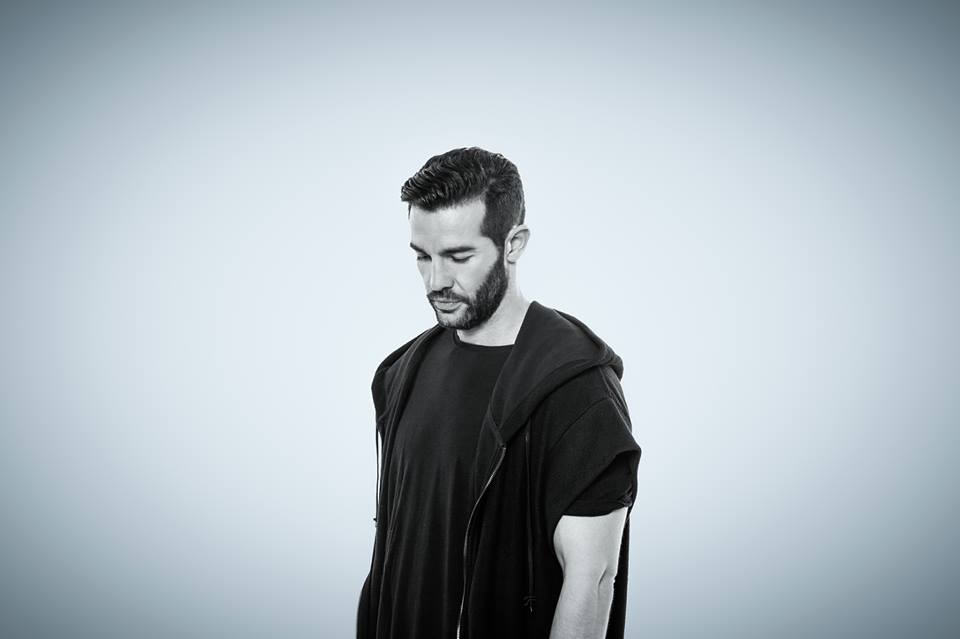AEX Festival, brought to life by Freak de l’Afrique, is making waves in Berlin’s nightlife scene by championing African music and culture. From its roots in Europe’s Afro-diasporic community to becoming a vibrant celebration of music, dance, and art, AEX has become a beacon for artists and audiences alike.
With a lineup featuring some of the best talents across Europe, AEX will offer an immersive experience blending workshops, panels, and unforgettable performances next November 29th & 30th at MAAYA.
We caught up with Melissa and Aziz from the AEX Festival team to dive into the origins, vision, and future of this cultural powerhouse. Read on to discover what makes AEX a standout event and how it is reshaping the landscape of Berlin’s nightlife!
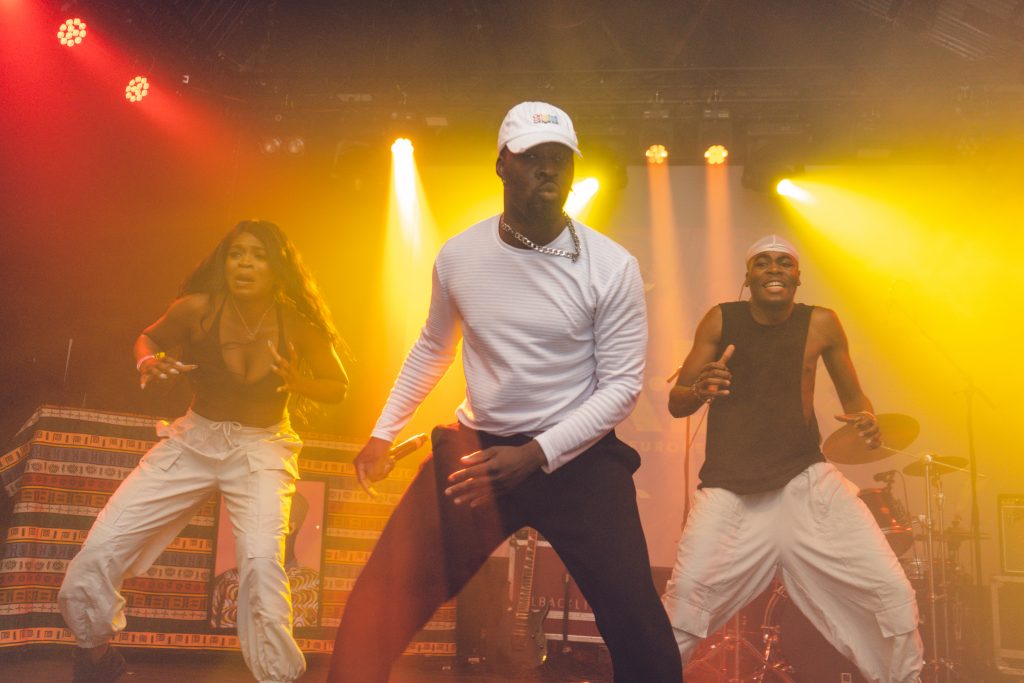
Let’s start with the basics. Can you tell us the story behind Freak de l’Afrique? What inspired its creation and how has it evolved?
The inspiration for Freak de l’Afrique was, on the one hand, the lack of spaces in Berlin where African music is played and, on the other hand, many journeys to different African cities where we saw the potential of African music if it’s played in a wide environment. It serves as a platform for various BIPOC artists in Berlin to showcase their art and a party crew that creates many unique experiences in Berlin’s nightlife that didn’t exist before.
Berlin’s techno and electronic music influence worldwide is undeniable. How has Freak de l’Afrique influenced Berlin’s music and nightlife scene? What unique role do you feel you play here?
Freak de l’Afrique has influenced Berlin’s nightlife in a way that provided a platform for many—especially BIPOC—artists in Berlin to showcase their artwork and, at the same time, also provided a space for like-minded people—be it from Black communities but also communities who like African sounds—to come together.
It is unique in the sense that it is a very big collective and crew, consisting of people from different backgrounds fighting for the same goal: to make African music a permanent identity of Berlin’s nightlife.
What role does African music play in influencing global music trends through genres like Amapiano and Afrohouse? Would you say this is the best moment of the scene or is it still facing challenges?
With artists like Tylah, we can totally see that this is one of the best times ever to be an amapiano artist. You can see them travel all over the planet; they’re booked at the biggest festivals. They’re also doing a lot of big scene stages, clubs in Ibiza, which is definitely the center of electronic music in general. It is a great time to be an amapiano artist.
When it comes to afrohouse, with the emergence of leading voices like Keinemusik, but also at the same time, people like Black Coffee who have been in the afrohouse, house scene for so long and are still very present and still booking stadiums. Those two genres are definitely in golden moments, and I really hope it is gonna last for the longest time possible.
This is one of the best times ever to be an amapiano or afrohouse artist. You can see them travel all over the planet; they’re booked at the biggest festivals.
AEX Festival for Night Mag (2024)
How does this cross-cultural influence show up in the Berlin music scene?
In the Berlin music scene, although some people sometimes don’t see it, the African music influence is quite important. There are a lot of promoters and colleagues who are doing a great job for these sounds.
I really think that there’s more and more people not only listening to the music thanks to those promoters who’ve been working so hard to bring the artists from the continent but also DJs from all over Europe and the world who are playing these types of sounds.
How was AEX born and what makes it stand out? Tell us a bit about the idea, its history and plans for the future.
The idea for AEX came because we realized that people know a lot about African music. The scene is very known, and its cultural scene, as well as the American Black scene, is very known, even the South American one. But you kind of feel like that even though there’s an identity for Afro-European culture and artists, it has to be showcased and given a platform. It’s a unique opportunity to connect with different cultures, get to know them, and enjoy the music.
What’s interesting with AEX is the idea that we’re bringing people from all over Europe, from different markets—not only the obvious markets like France, the UK, and Germany itself. What is great for Berlin and Berliners is also to see, as a mirror, what other people are doing within the Afro-diasporic community and for Berlin, it’s not just looking inwards but also outwards. We tend to be the “cool kids”, the ones that do a lot of great things, but outside—whether it’s in Poland, the Netherlands, Sweden, etc.—we also have members of the Afro-diasporic community doing great things for these sounds.
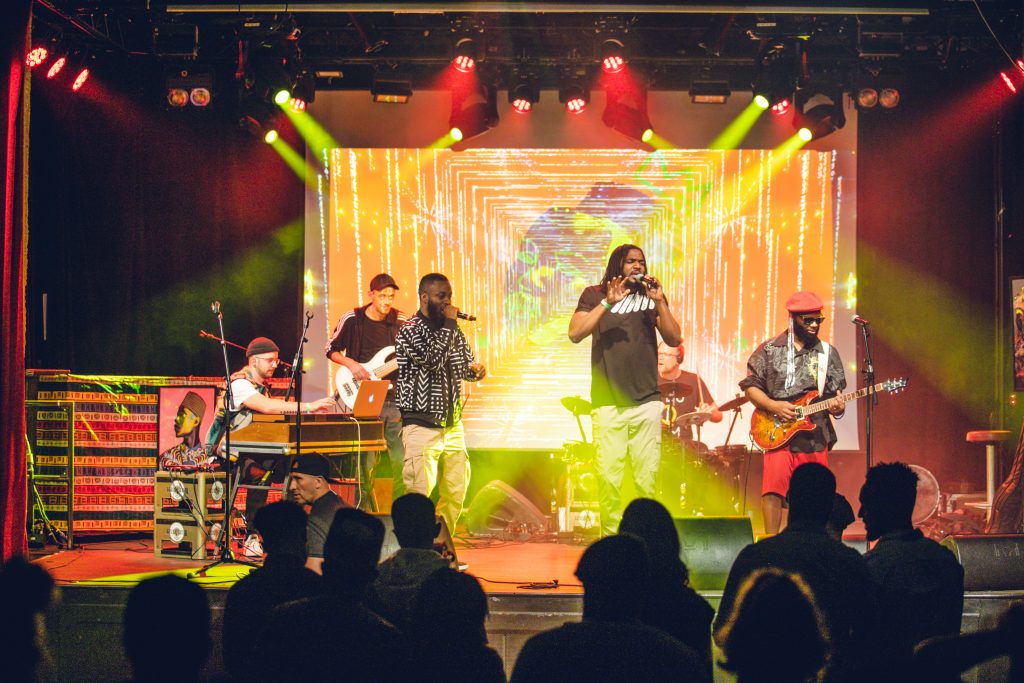
How do you see this festival contributing to the community in Berlin and beyond?
AEX and Freak de l’Afrique have been involved in Europe and other markets as well, playing all over Asia, the US, and Africa. It was the idea of not only bringing artists from the continent but also realizing that within the Afro-diasporic European community, there is a lot of talent—great producers, singers, and lyricists.
The idea was to create an event where all these people, whom we would have seen throughout the year in different spaces, come together during the weekend in Berlin and showcase that the Afro-diaspora in Europe has great value. A lot of value is in bringing the sounds from the continent, but also in our unique way of adapting those sounds for this market and for us, being European and African. Bringing all this talent that we’ve met along the way for a weekend in Berlin and showcasing what we’re doing—not just in the obvious markets (UK, France, or even Germany)—but ensuring we have people from Sweden, Italy, Portugal, Spain, and Poland, covering Europe in the broadest sense of the term.
The idea was to create an event that showcases that the Afro-diaspora in Europe has great value.
AEX Festival for Night Mag (2024)
Tell us about the music concept and programming. How do the selected artists contribute to AEX’s overall identity and essence?
As the creation of the festival is essentially based on bringing different art forms together, music is, of course, the major platform, and in our case, as we are also many DJs, there is a big focus on them, but also a lot of live acts, great singers, and digital artwork, as well as dancers. Additionally, there are, of course, many Black talents from Berlin that we wanted to give a platform to. A little bit of everything, but the main focus is on dancing and having a good time.
What should we expect from this edition? Are there special performances or unique set-ups planned this year?
This year we have two clear lines when it comes to music. On Friday, we are more focused on African electronic sounds; it’s going to be more afro house. I think the people we picked are individuals who, within not only their own markets but also across Europe and worldwide—in Asia and Australia—are bringing a very unique Afro-European vision of music to their sets. This is what we want to showcase: people who are doing great things in their own markets—like Danni Gato in Portugal, for example—and also bringing this particular sound beyond their home markets.
We also have other elements, such as workshops, dance workshops…We have Kapela coming from France, who is not only a great DJ but also a talented teacher, choreographer, and dancer. We aim to bring together people who have been contributing and working hard for a long time and to show that these individuals, outside of Berlin and Germany, are also helping foster and strengthen the space and place of African music within Europe.
